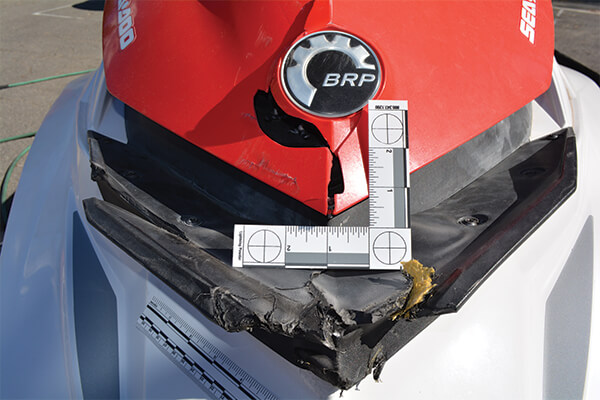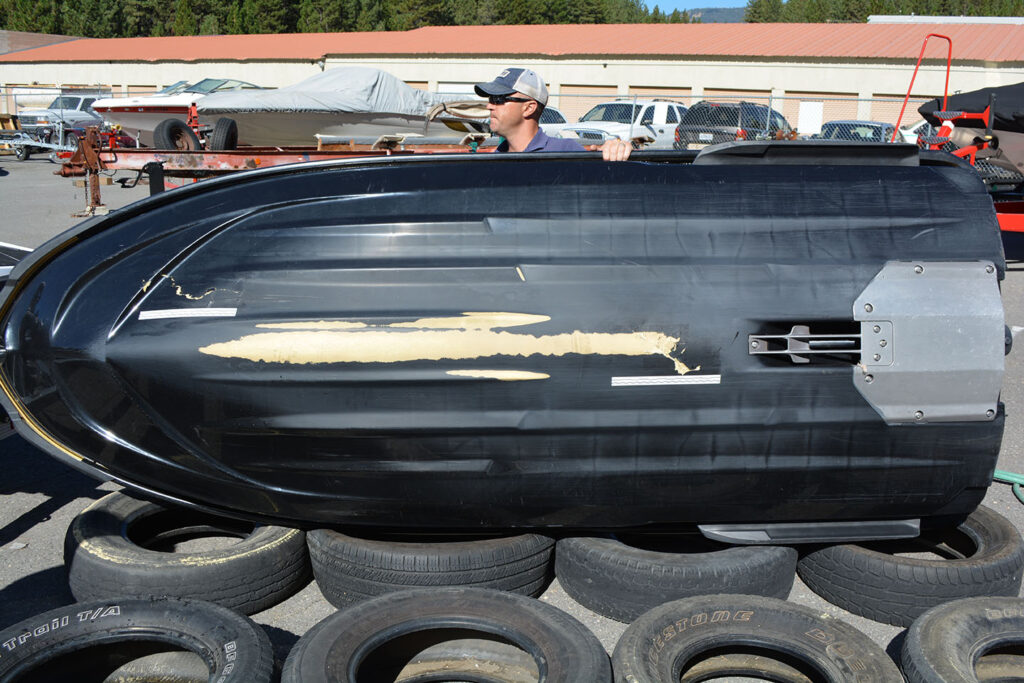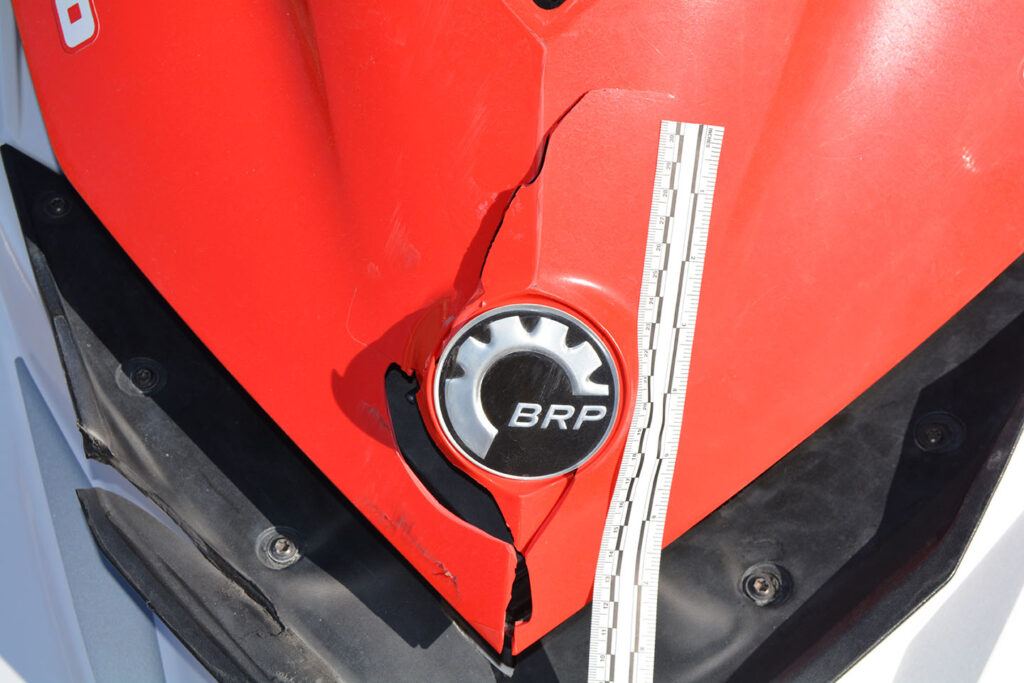Home » Family PWC Tragedy

Mother and daughter rented two PWC’s (Personal Watercraft), and both attended the rider orientation provided by the rental agency at the lake. A rental agreement, which said in part to follow the safe riding rules, along with the safe riding rules, were signed by both riders.
The rental agency had a ski boat and operator out towing passengers. When he saw the way the two PWC riders were operating in such close proximity to each other, he stopped and warned them to maintain a safe distance away from each other.
A short time later, they collided. The daughter’s PWC ran up the bow of the mother’s PWC striking her in the face and killing her. I was retained by an attorney I have worked with in the past who was representing the rental agency’s insurance carrier.
My duties were as follows:
1.) to perform damage assessments on the two PWC’s,
2.) to operate both vessels, determine operational condition, detect any mechanical defects to steering or propulsion systems, and
3.) to determine causation.
Damages were documented of both craft.


• The rental agency provided a verbal warning on the dock.
• Two rental agreement forms were signed, providing additional warnings.
• Warning labels were affixed to PWC.
• The ski boat skipper witnessed reckless operation and made the extra effort to stop what
he was doing to make an approach, stop the two operators, and give his warning.
Both the mother and daughter were provided with several verbal and written warnings to operate safely prior to and then during, their riding time. All warnings were ignored. The two PWC renters violated therental agreement, the manufacturer’s warning label, the ski boat skipper’s warning, and operated in a reckless manner. No legal action was initiated, civil or criminal.
PWC are propelled by a water jet nozzle and require thrust to turn. Novice riders finding themselves in a situation where they need to turn to avoid something will turn and let off the gas, thus diminishing any steering input.
Universal PWC training includes the need to be extra vigilant regarding risk of collisions and to show courtesy on the water by being aware of your noise, avoiding staying in one area, observing speed control zones, learning the navigation rules, etc. PWC are considered powerboats by the USCG and must follow the same rules as all other types of powerboats. Like a motorcyclist vs vehicle, the PWC rider is fully exposed to direct contact with any object it hits.
For PWC specific information see:
Personal Watercraft Industry Association
International Jet Sports Boating Association